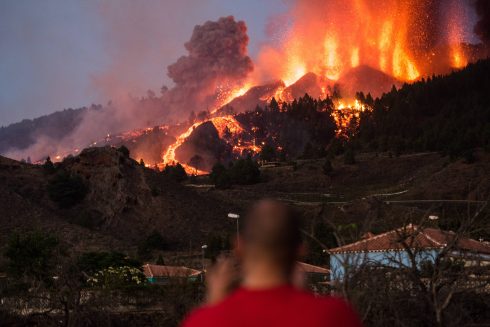SPAIN has seen a big fall in land destroyed by forest fires in the first eight months of 2023- around half the average for the last decade.
Figures for the year up to August 25 from the Ministry for Ecological Transition(Miteco) showed over 42,000 hectares have been devastated compared to nearly 79,000 hectares last year.
The worst year of the decade was 2022 with nearly 249,000 hectares burnt.
READ MORE:
- Local man, 67, jailed for deliberately starting a forest fire near a Costa del Sol community – as Andalucia given ‘extreme’ warning for further blazes
- Evacuated residents return to their homes following ‘severe’ forest fire in Alicante

The large reduction this year is down to above average rainfall towards the end of spring coupled with fewer heatwaves during the summer and the August arrival of rain and storms.
Professor of forestry engineering at Lleida University, Victor Resco, said it was good news that the weather favoured fewer forest fires but warned that the ‘extended forest mass’ favours the ‘gestation of what will be future megafires’.
Megafires are characterised by their large size and virulence, and although they are usually few compared to the rest, they are increasingly ‘more damaging’ and are aggravated by climate change.
According to the figures Miteco, the number of large fires over 500 hectares so far this year is 16- just one less than in 2023 .
In 2018, there only three large fires, but 2022 saw 55 such blazes.
Victor Resco told the Efe news agency: “It’s not recommended that in some years a lot of forest is burned and others much less because that adds accumulated forest fuel, with the danger that it will end up burning at any time that is suitable for that to happen’.
Resco commented that the fall in burned forest areas ‘should not necessarily be understood as good news’ as this year’s decrease is really down to ‘fortuitous, unforeseen climatological factors’.
“Preventive policies to fight are more effective and less expensive than the last resort of extinguishing,” he said.
“It is not acceptable that we have to live condemned to suffer fires that run amok,” Resco added.
“We know what we have to do to manage the fire properly from prevention; we know how to do it and at what cost,” he explained.
The vast majority of forest fires have their origin in human activity due to negligence, accidents or intentionality, although the number of ignitions has been falling for years and the focus- according to Resco- should be on ‘controlling megafires’.
In his opinion, rural abandonment, the inadequate state of the vegetation that leads to fires and other causes such as climate change are factors that require greater attention for the effective control of forest fires.









